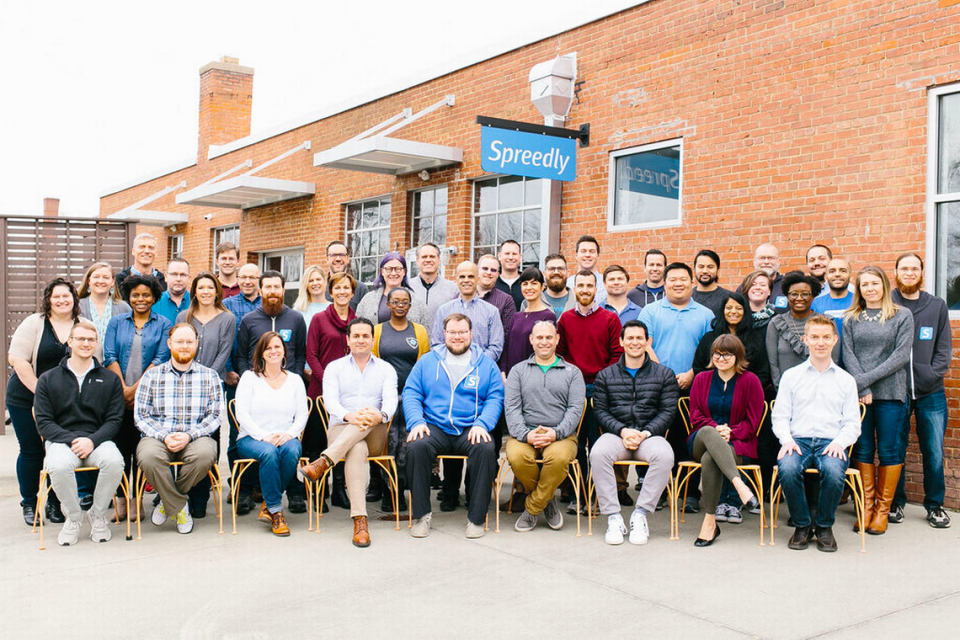When does a startup stop being a startup? Everyone in the Triangle has a different answer.
Earlier this year, Amit Enand and a few of his coworkers began to observe that their employer, the Durham-based firm Spreedly, no longer seemed to use a particular word.
“It wasn’t like an official communication or anything like that,” Enand, a 26-year-old software engineer, said. “It was kind of like: ‘Have you noticed how they stopped calling ourselves a startup?’”
No single metric marks when a startup graduates from being a startup. None exists.
“It’s really squishy because there is no clear definition and there are a lot of ‘lenses’ to look through,” said Scot Wingo, a serial entrepreneur who last year launched an investment fund for local tech startups.
With the word’s meaning nebulous, many businesses and employees in the tech-centric Triangle deploy it strategically.
The large Raleigh software provider Pendo, which has 750 employees, says its culture “combines the thrill of a startup with the reassurance of grown-up responsibility.”
Nellie Vail, Spreedly’s chief financial officer, admits she’ll still say she works at a Durham startup when describing her job to others. “It’s a word that makes people think and want to look into ‘What is that company?’” she said.
But internally, she affirmed what some Spreedly colleagues noticed: The 16-year-old payment processing software provider with 130 employees and more than $20 million in annual revenue doesn’t consider itself a startup anymore.
Startups are inherently risky. An often-cited statistic is that nine in 10 of them fail. Merriam-Webster defines the word as “a fledgling business enterprise.”
Yet some seek the edginess and growth potential the label conveys.
As managing editor of the Triangle-focused tech news outlet GrepBeat, Pete McEntegart said several self-described “startups” like to think of themselves “as small and scrappy even if they’re not small anymore.”
However, some view the word as a pejorative; once, an employee at a local public technology company bristled when McEntegart called the company a startup.
“It’s like, ‘I wouldn’t join a startup. I have a mortgage and a family. I joined a real company,’” McEntegart said.
So, what is a startup?
There are a few generally agreed upon terms for what a startup is and isn’t. Year-old firms actively fundraising with less than $1 million in annual revenues are startups. A company ceases to be a startup when it “exits” — either by being acquired or by going public. And brick-and-mortar stores are small businesses, not startups.
“People keep asking me: ‘How do I know if I’m running a small business or if I’m running a startup?’” said Jessica Mitsch Homes, cofounder and CEO of the Raleigh education tech firm Momentum. “Well, the startup is going to continue to iterate, respond to the market and go after growth. They’ve got this pie-in-the-sky kind of hope.”
Beyond that, Triangle tech stakeholders set their own parameters.
Wingo said he “spent a fair amount of time” defining startups for his Triangle Tweener Fund before capping eligibility at companies with 500 employees or $80 million in yearly revenue.
Levitate CEO Jesse Lipson said, “As far as I’m concerned, every company is a startup for the first five years after it’s founded.” He added a company can still be considered a startup for years after “as long as it continues to grow quickly.”
Having luxury to think longer term distinguishes a startup from a post-startup, Homes said.

“To me, you get out of that label when you’re going into new calendar years with a pretty clear and predictable revenue stream,” she said. “So instead of thinking six months to a year (ahead), we can start looking at three to five years.”
Bill Spruill, another prominent area entrepreneur and investor, noted a good way to spot a startup is to identify what comes after.
“That is typically a growth scale company,” he said. “Most growth equity investors say a company should be at (more than $5 million in annual recurring revenue) to be considered growth scale.”
Amit Enand says his employer’s subtle semantic shift away from “startup” has “definitely crossed my mind.”
To him, a startup conveys a certain type of fun, dynamic work environment where each employee’s work has an outsized impact on the company’s future. Like Spreedly’s CFO, Enand enjoyed saying “I work at a startup” when talking to peers.
But on the job, he acknowledges ditching the term has advantages.
“Startups come with so much risk that as soon as you feel like you can exit that sort of world, you want to,” he said. “Because if you’re a Fortune 500 company, are you really going to put your faith in a company that might not be there one day?”
Open Source
Do you enjoy Triangle tech news? Subscribe to Open Source, The News & Observer's weekly technology newsletter and look for it in your inbox every Friday morning. Sign up here.

